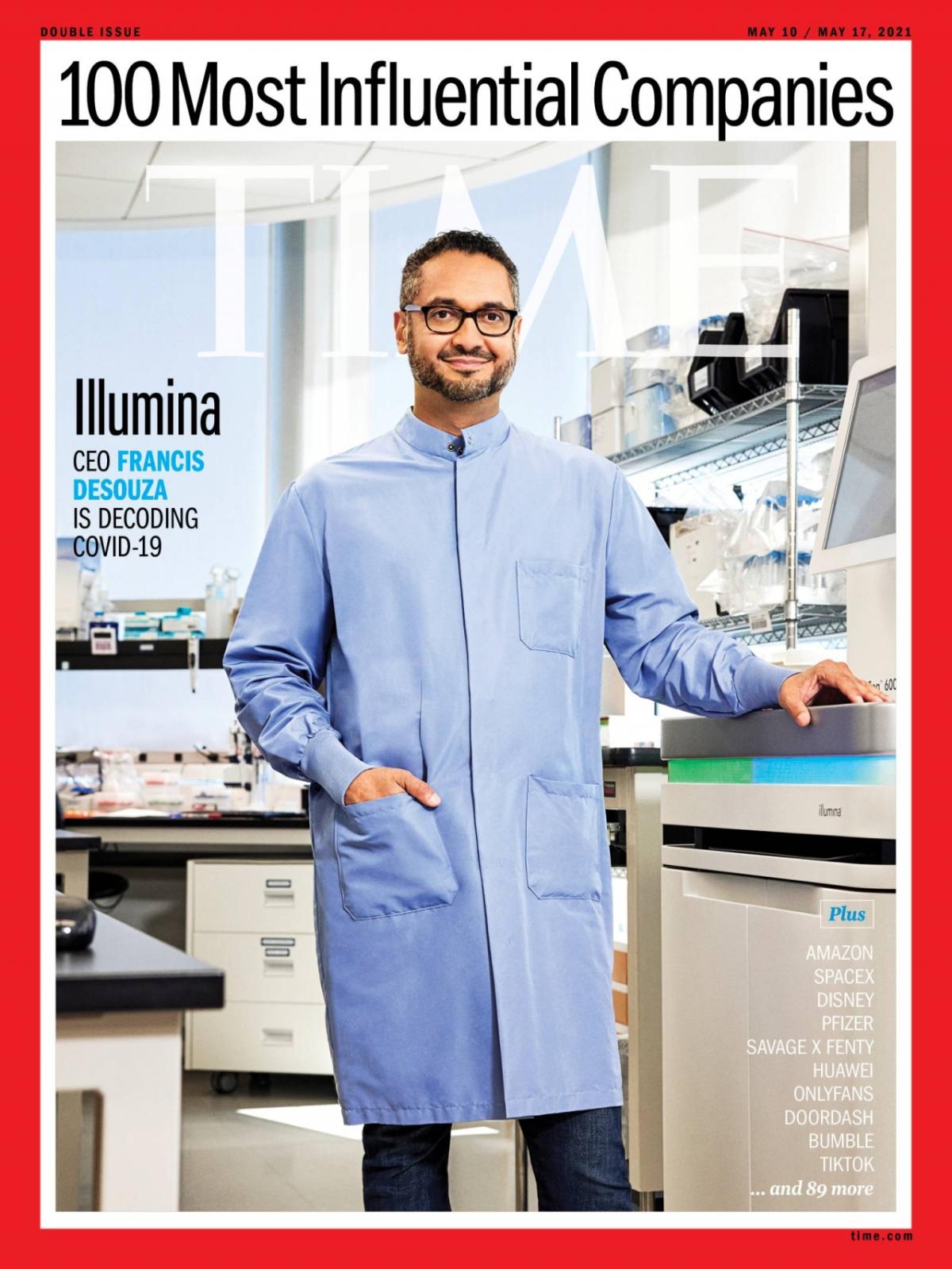Illumina Is One of the 2021 TIMES Most Influential Companies

The pandemic is providing a stage for demonstrating what genome sequencing can do for infectious diseases like COVID-19 as well as other conditions like cancer. When it comes to public health, genetic sequencing isn’t as routine a part of disease management as it should be. The pandemic has brought us into the 21st century, into the era of biology and the era of the genome. But many parts of the world don’t have such resources to purchase Illumina machines,—not to mention to analyze and interpret the results. “We need global co-operation to come together on a number of fronts,” says deSouza. The first challenge, he says, is creating a global network that scans and shares information on disease-causing pathogens. In 2020, Illumina donated sequencing machines to 10 countries in Africa so health departments could begin sequencing, some for the first time, microbes that doctors collect from patient samples to get a better sense of what is circulating and to identify the especially dangerous pathogens.
That information also needs to be shared with the world. If COVID-19 taught us anything, it is that an outbreak of cases anywhere can soon become a problem everywhere. So in April, Illumina partnered with the Bill and Melinda Gates Foundation and other public and private groups to launch a global pathogen genomics initiative to build genetic-sequencing capabilities in many places where it doesn’t currently exist. The company is committing $60 million for machines and to train experts in the developing world over the next five years. Such a network could sound the alarm if a new virus sparks an outbreak, and the information gleaned from its genetic code could pave the way for quickly developing drugs or vaccines to control it.
